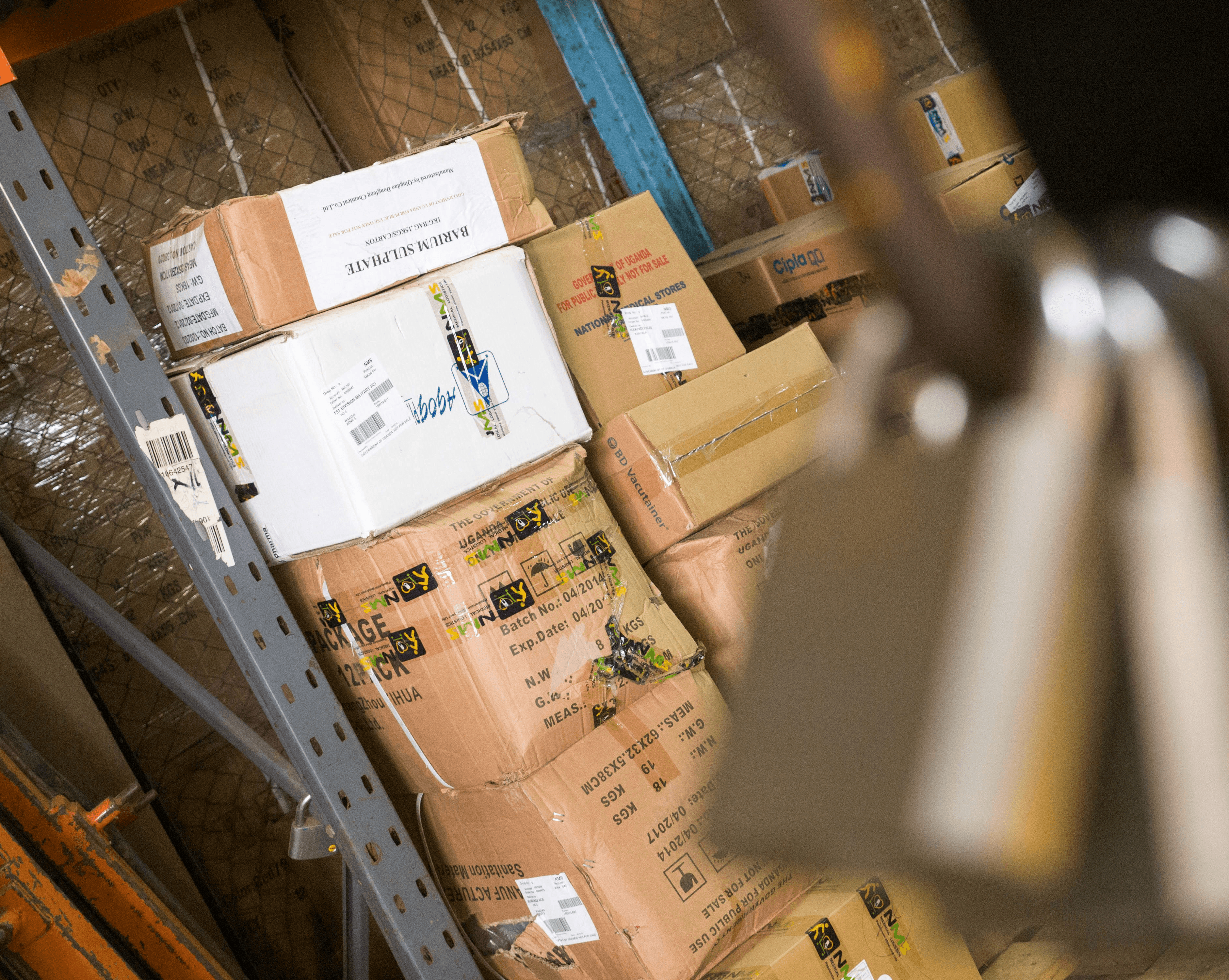Have you ever searched through a box of old family papers and marveled at how your grandparents kept everything in meticulous order — or maybe in complete disarray?
The ways families organize important documents, manage records, and share critical information have changed dramatically over the decades. What worked for past generations often feels outdated today.
Let’s explore how personal and family organizational habits have evolved across generations and how modern platforms like Trustworthy meet today’s organizational needs, bridging the gap among generations.
Baby Boomers: Traditional Organization Methods
Paper-Centered Systems
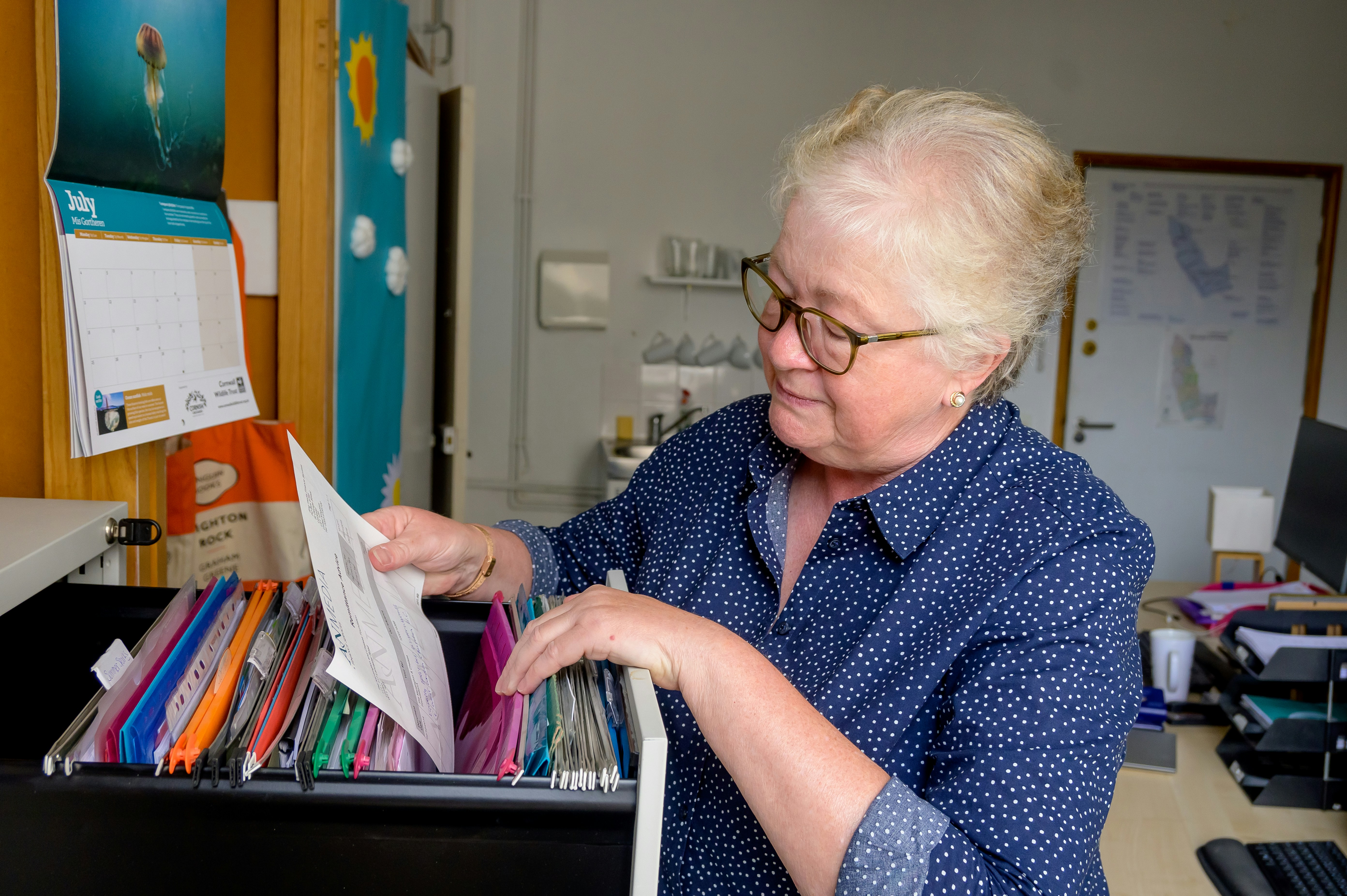
For baby boomers, those born between 1946 and 1964, paper was king. Important family documents were stored in filing cabinets, safety deposit boxes, or home safes. Wills, property deeds, and family records were printed on official stationery, but sometimes even written by hand. Photo albums, scrapbooks, and even family Bibles served as repositories of family history.
Many boomers have grown more comfortable with digital tools, but they still tend to have higher concerns about online privacy, leading to limited digital storage usage.
Cultural Norms and Family Roles

In many households, one family member — often the matriarch or patriarch — took on the role of household organizer. This responsibility typically passed informally, with little consideration for broader family access.
The major challenge? When that person passed away or could no longer manage the records, the entire system could fall into disarray.
Gen X: Transitional Organization
Bridging Two Worlds
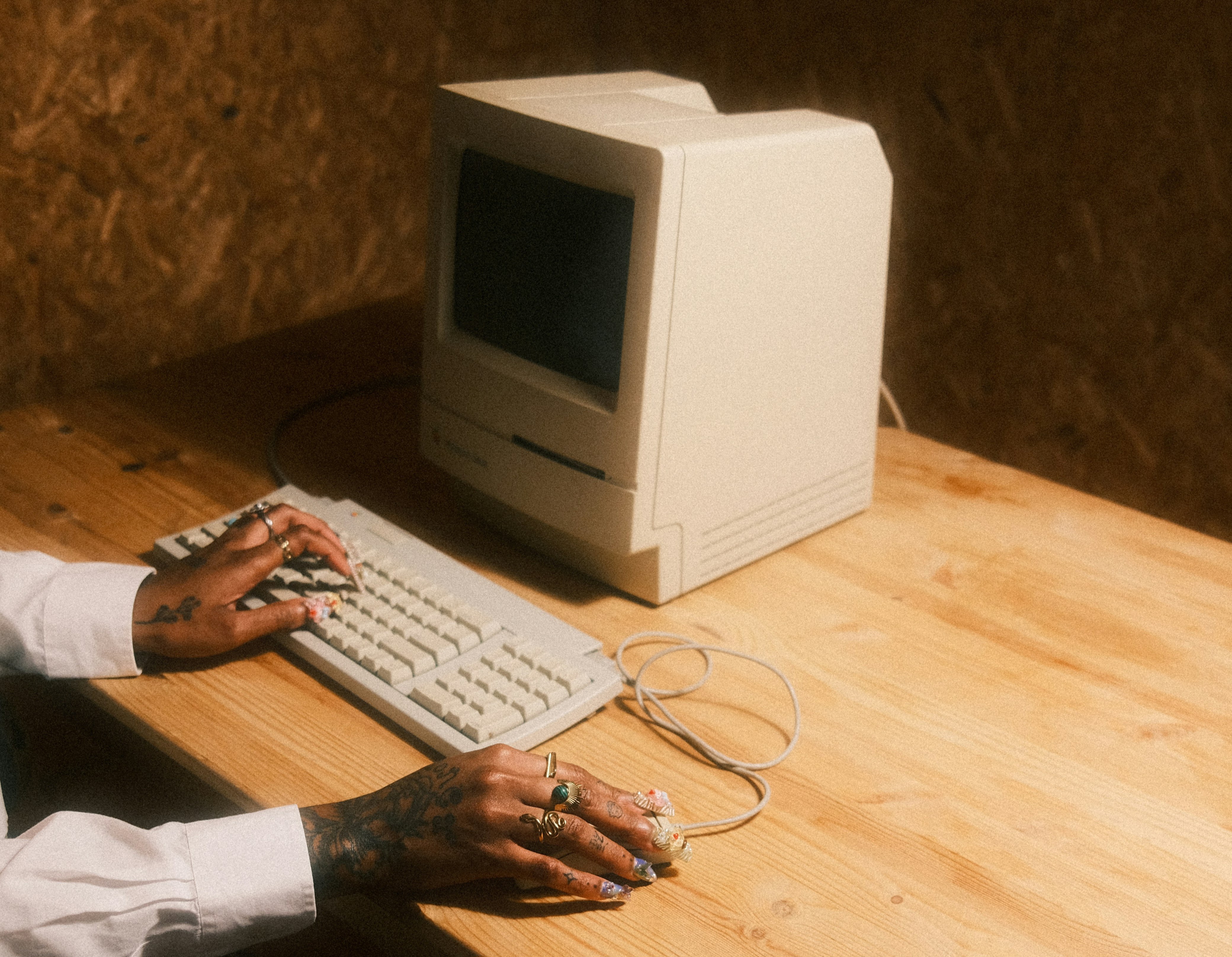
Gen X — those Americans born between 1965 and 1980 — grew up in a transitional era, bridging the gap between paper and digital.
While they may have started with paper filing systems, they were among the first to adopt home computers and use early digital tools like floppy disks and email. Storing digital files on personal computers became common, though often with limited backups.
The rise of personal computers in the late 1980s and early 1990s introduced new ways to store and manage documents, though digital storage was still in its infancy.
The Rise of the Internet
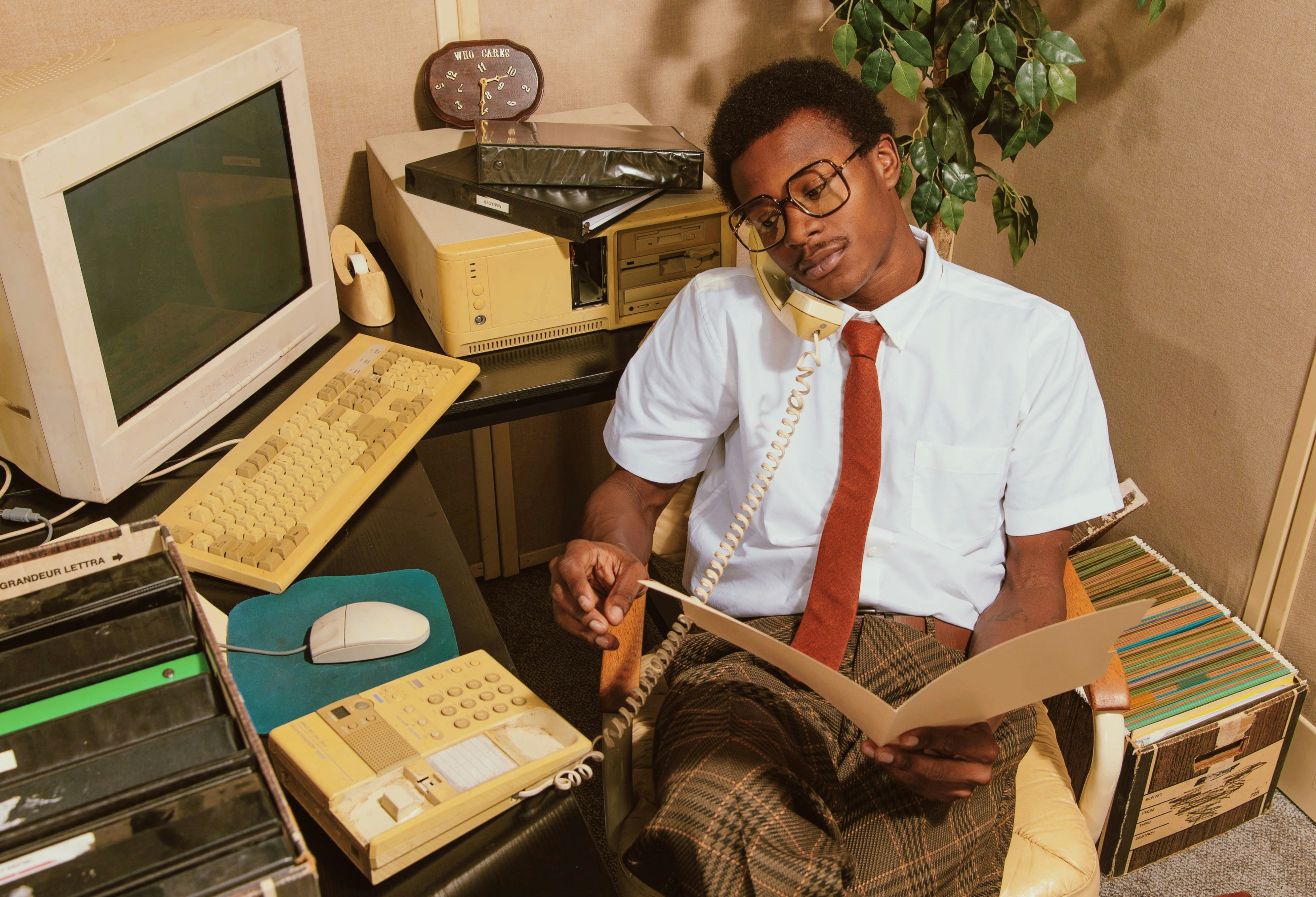
The explosion of the internet in the late 1990s and early 2000s revolutionized family organization. While younger generations were early adopters of new technology, many members of older generations also embraced digital tools, adapting to evolving organizational methods.
Online banking, email accounts, and cloud-based services began replacing physical files. Families could now access important documents from anywhere, making traditional filing cabinets increasingly obsolete.
Shifting Family Responsibilities

Gen X families also saw a shift toward shared organizational roles. Spouses and partners began to manage documents together. However, early tech tools were often clunky, and paper records still played a major role, leading to fragmented systems.
For example, a Gen X couple might have saved family tax returns on a home computer but kept birth certificates and passports locked in a file cabinet.
Even today, they may still maintain physical files for important documents while utilizing digital storage for everyday information. Gen Xers tend to be more cautious about sharing sensitive information online compared with younger adults.
Millennials and Gen Z: Digital-Native Organization
Digital First, Paper Last

Millennials (1981-1996) and Gen Z (1997-2012) have always had technology at their fingertips. Cloud storage, password managers, and shared digital calendars have largely replaced physical filing systems.
These generations expect instant access, seamless sharing, and real-time updates. The smartphone revolution of the 2000s made immediate access to personal data a daily reality.
Compared with earlier generations, they are typically more comfortable sharing personal information online, but they also have growing concerns about data privacy.
Family Dynamics and Accessibility

Millennials and Gen Z prioritize transparency and shared responsibility when managing family information. However, this tech-forward approach comes with challenges: data security concerns, information overload, and a reliance on tech-savvy family members to manage digital records.
When planning a family vacation, a Millennial might create a shared Google Drive folder for travel documents, while their Gen Z sibling adds trip itineraries directly from a mobile app.
Generation Gaps in Organization
Contrasting Expectations
Baby boomers might still expect Millennials and Gen Z to rely on paper backups or maintain traditional filing systems. Younger generations, in contrast, may see such methods as inefficient and outdated.
Bridging the Gap with Trustworthy
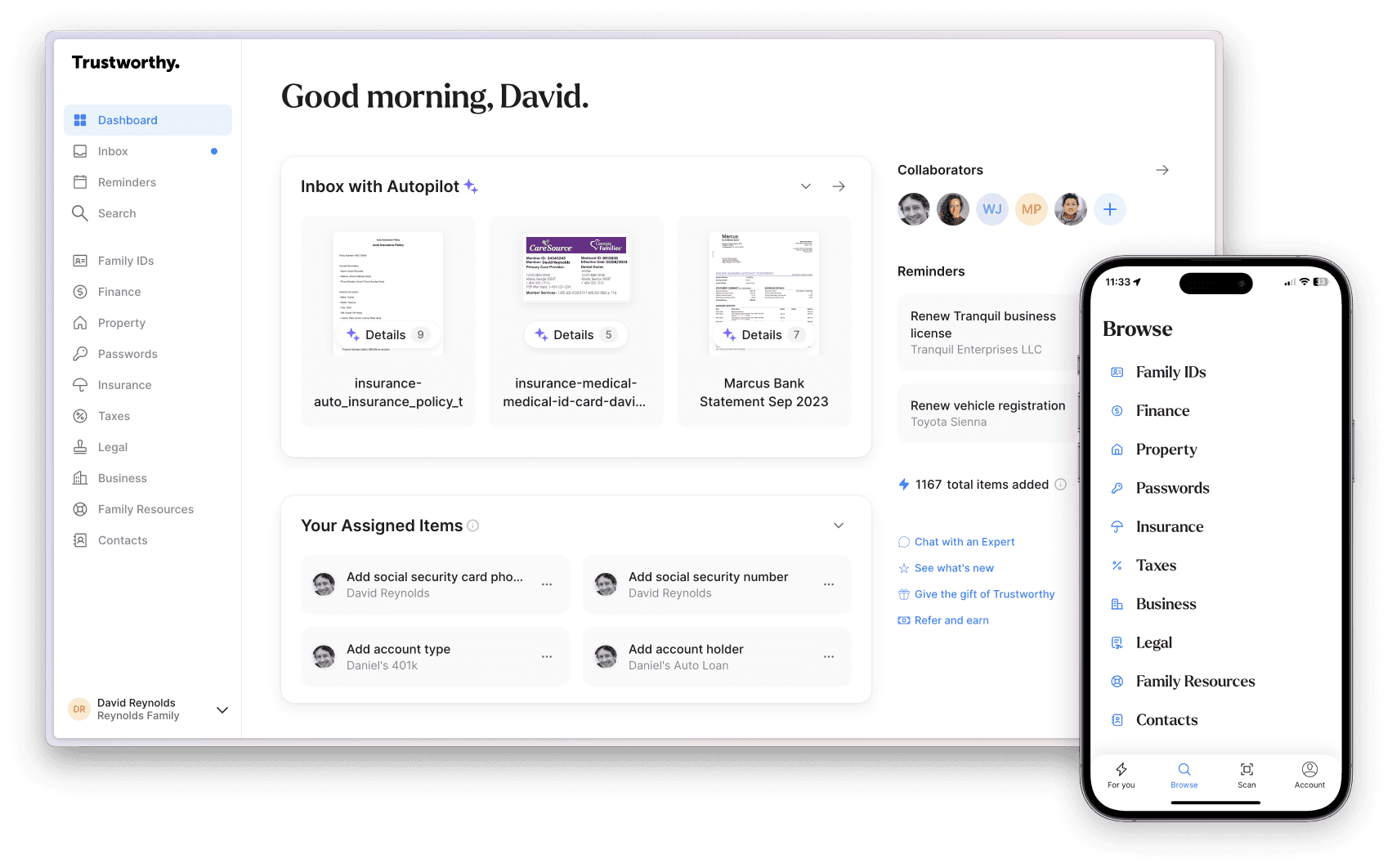
This is where Trustworthy comes in. It serves as a digital bridge, offering a secure, organized space for all family members, regardless of tech comfort levels.
Older family members can appreciate its structured system, while younger generations value its digital-first convenience and world-class security features, role-based permissions, and automated reminders.
Consider how your family manages its important information today — and how Trustworthy's Family Operating System® could make that process easier, safer, and more effective.
No matter the generation, a key to long-term success is getting started now. Trustworthy ensures that families can create a lasting, secure digital legacy accessible to future generations.
See how Trustworthy can simplify your family’s information management today and give everyone peace of mind.
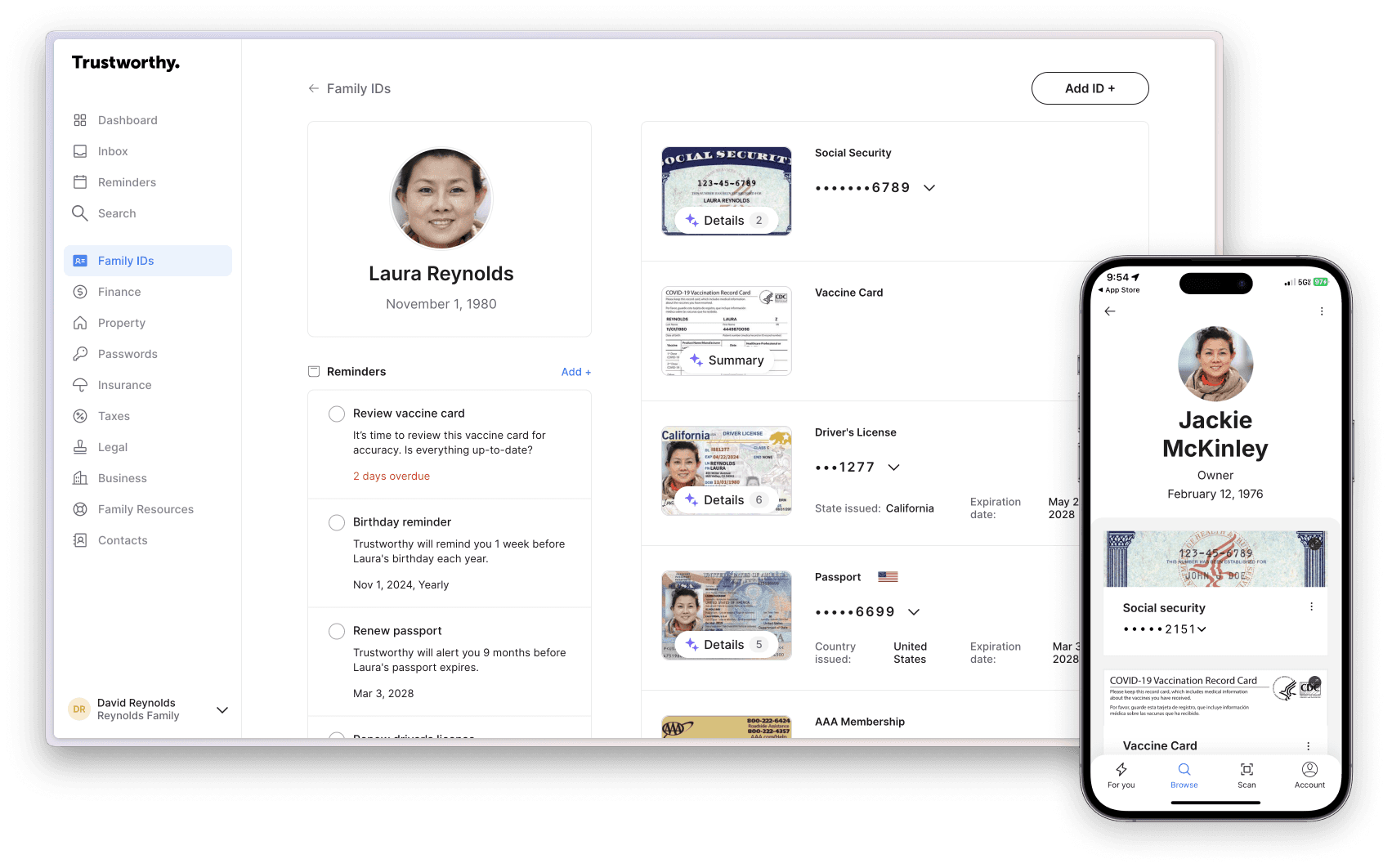
We’d love to hear from you! Feel free to email us with any questions, comments, or suggestions for future article topics.
Trustworthy is an online service providing legal forms and information. We are not a law firm and do not provide legal advice.
